If you’ve bought a portable gas can at some point in the last two decades, you’ve probably found that it doesn’t necessarily pour as well as older cans from the past. The EPA had a hand in that, but now it’s trying to change things. It’s reaching out to manufacturers to ask them to make better, more usable gas cans that still meet environmental standards.
“Make Gas Cans Great Again by Improving Flow” was the cheery title the agency used to announce this new push. “Today, U.S. Environmental Protection Agency issued letters to portable fuel container (PFC) manufacturers encouraging them to add vents to gas cans to ensure safe and effective refueling,” reads the release. “This announcement comes in response to years of complaints about slow, frustrating fuel flow from modern gas cans.”
There is some feeling that the EPA caused this problem with the introduction of various gas can regulations over the years. However, the agency is adamant that gas cans don’t have to suck, and that good flow is still possible if manufacturers step up to the plate.
These ridiculous gas cans with “Safety spouts”…
byu/Pinchaser71 inmildlyinfuriating
Some have taken to modifying their post-2009 gas cans with vent kits to make them flow better.
It all comes down to venting. In 2007, the EPA mandated that manufacturers of fuel containers had to reduce evaporative emissions by ensuring gas vapors weren’t freely vented to the atmosphere. This rule came into effect in 2009. The agency notes that the widespread interpretation from manufacturers was that any sort of venting was banned. Thus, gas cans were made without vents, which made pouring fuel difficult. Without a vent, there is no easy way for air to enter the can to take the place of the fuel flowing out.
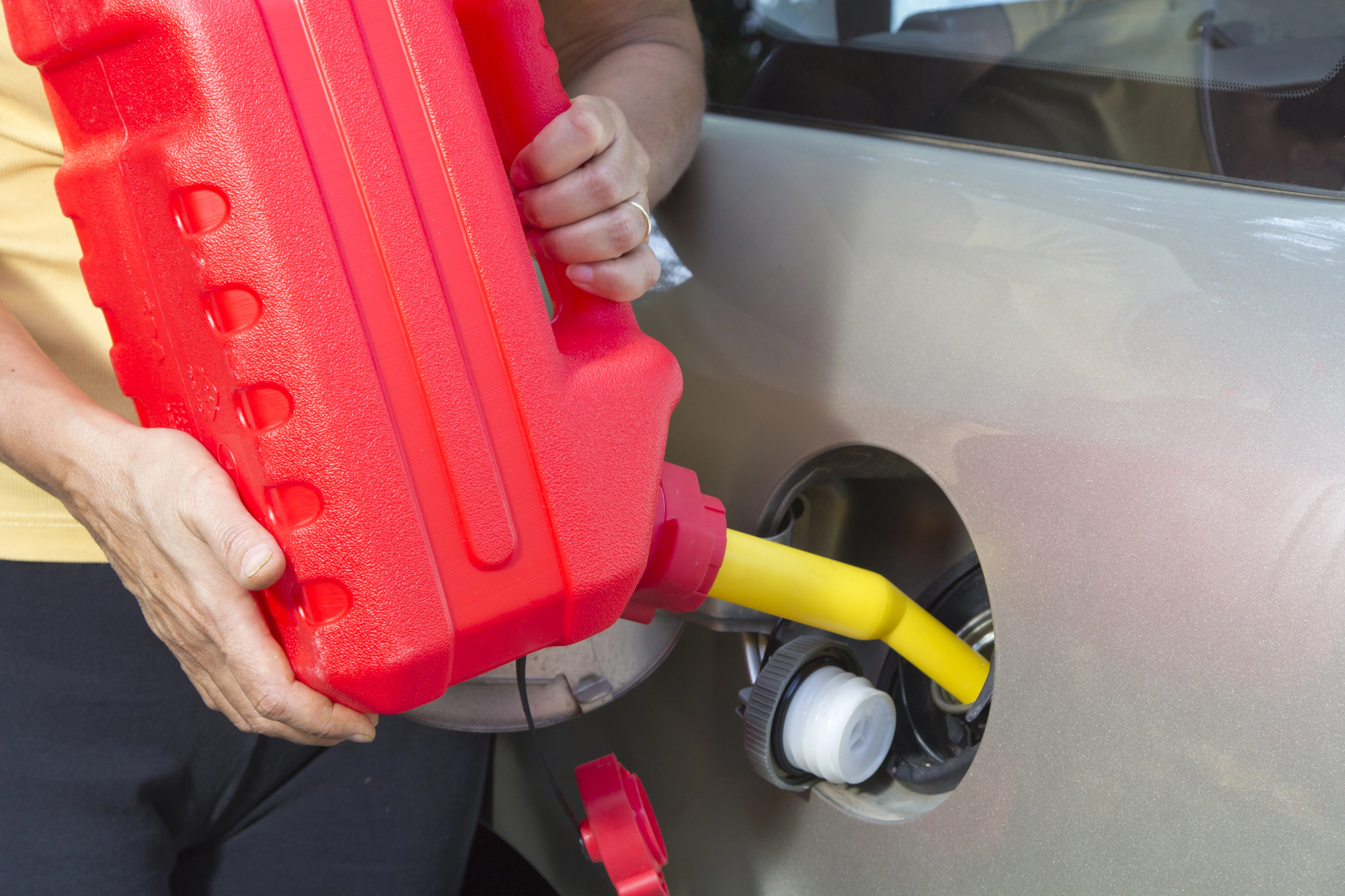
Since EPA’s evaporative emissions standards for PFCs went into effect in 2009, we have heard concerns from consumers, retailers, and elected officials about the performance of newer gas cans. One of the most common complaints is about slow fuel flow. Some of these concerns appear to stem from confusion about the intent and scope of EPA’s regulations. In reviewing the range of PFCs on the market today, EPA notes that only a small number include a separate vent to support smooth and fast delivery of fuel. Without a vent, PFCs must self-vent through the spout which we believe may explain consumer complaints related to slow dispensing of fuels from modern gas cans.
We further understand that some manufacturers may inaccurately believe that EPA’s 2009 evaporative emissions standards for PFCs preclude the use of vents. To be clear, EPA’s regulations do not prohibit the inclusion of vents in PFCs. The Agency’s rules explicitly allow vented containers, provided that the vents are designed to automatically close when not in use, without requiring any action from the user. For example, a manufacturer may have a push button operated vent with spring closure that will meet EPA’s evaporative standards and provide active venting to improve fuel flow when dispensing gasoline.
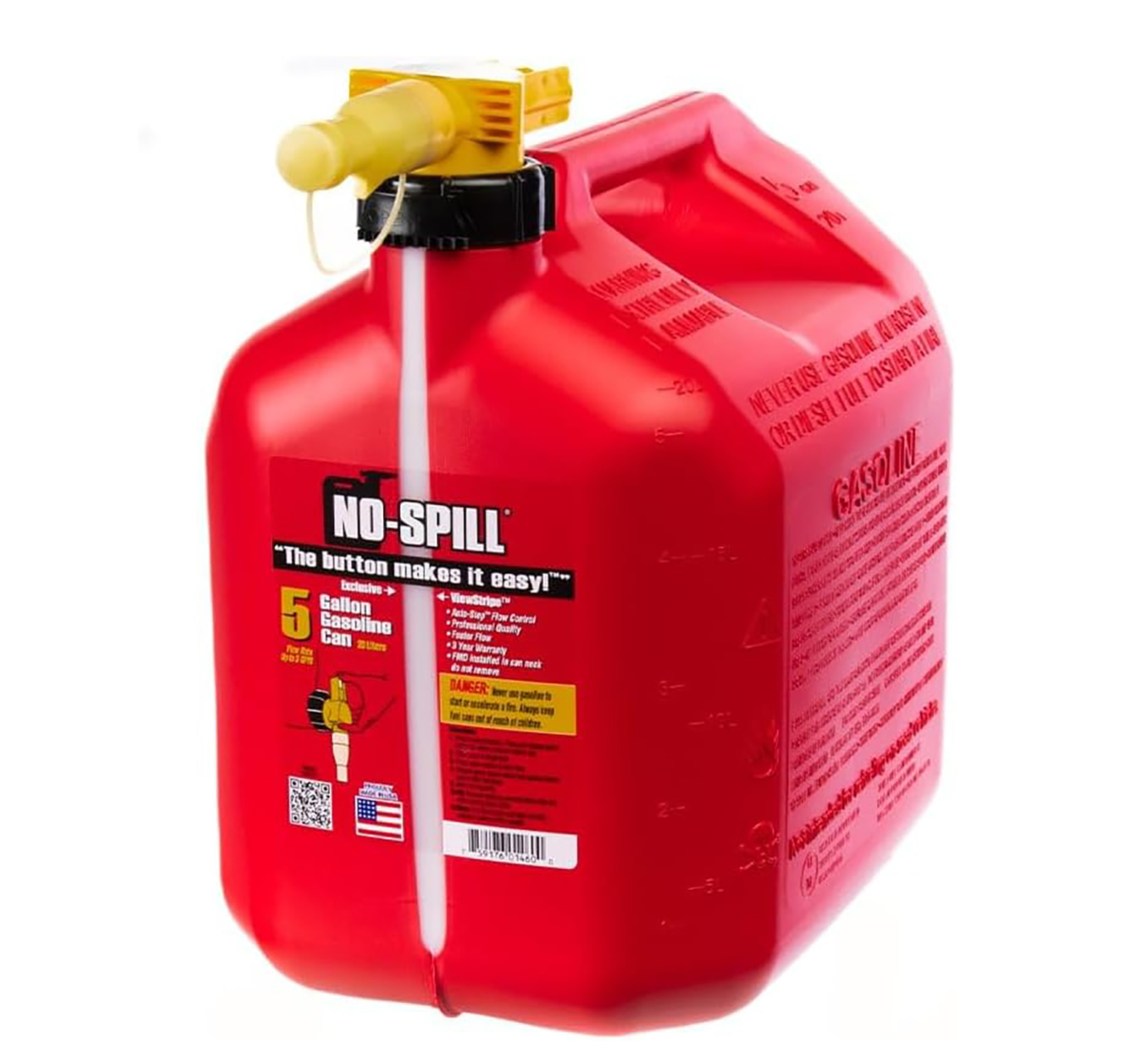
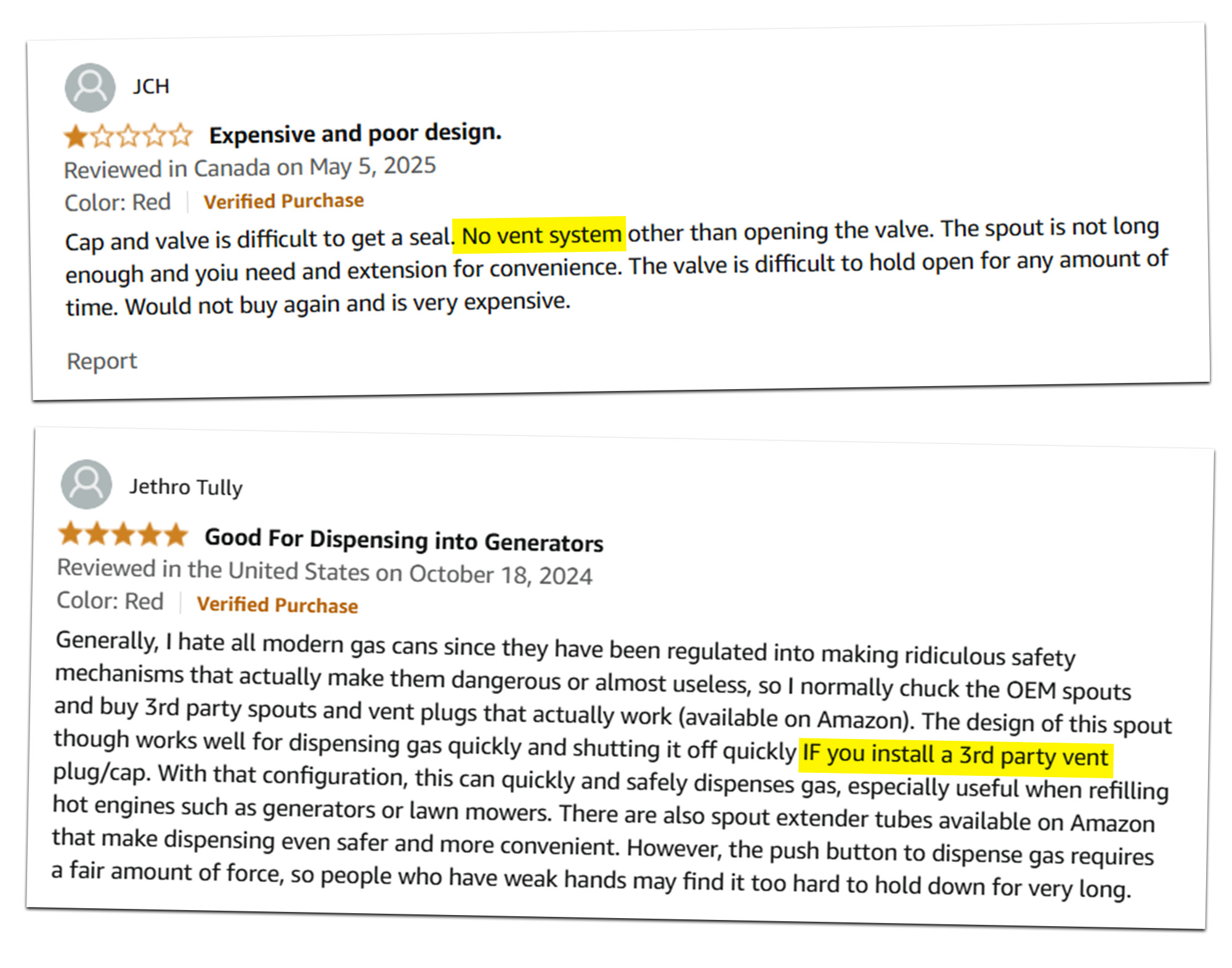
The EPA also notes that other rules have had a further impact on the usability of modern gas cans. It specifically cites a 2008 measure passed by Congress that required gas cans be child-resistant, under the Children’s Gasoline Burn Prevention Act.
“These child resistance rules led to many of the spring-loaded, hard-to-use nozzles,” stated the EPA. Congress passed a further measure requiring cans to feature measures to prevent flashback ignition, which “further complicated nozzle and spout designs,” according to the agency.
Ultimately, meeting all these requirements and still providing good functionality isn’t easy, and the agency acknowledges that. However, it still believes that the product on the market can be better by incorporating legal venting mechanisms. “We recognize the technical challenges of designing a product that satisfies all applicable standards while remaining user-friendly,” reads the letter to manufacturers. “We believe incorporating vents is a practical step toward enhancing consumer usability.”
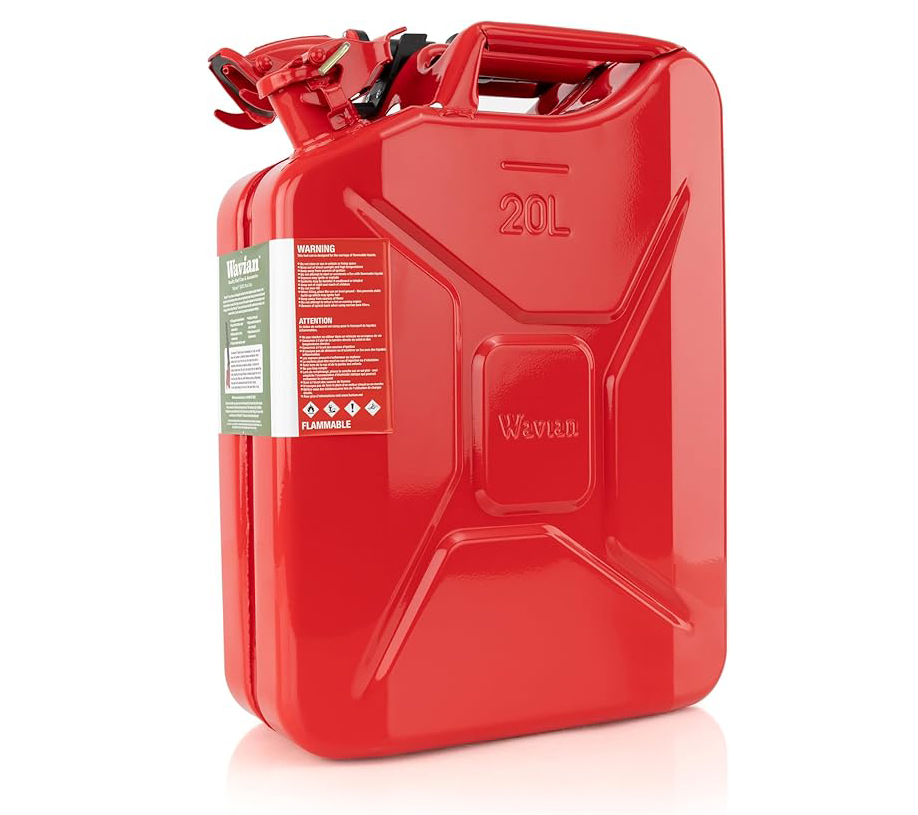
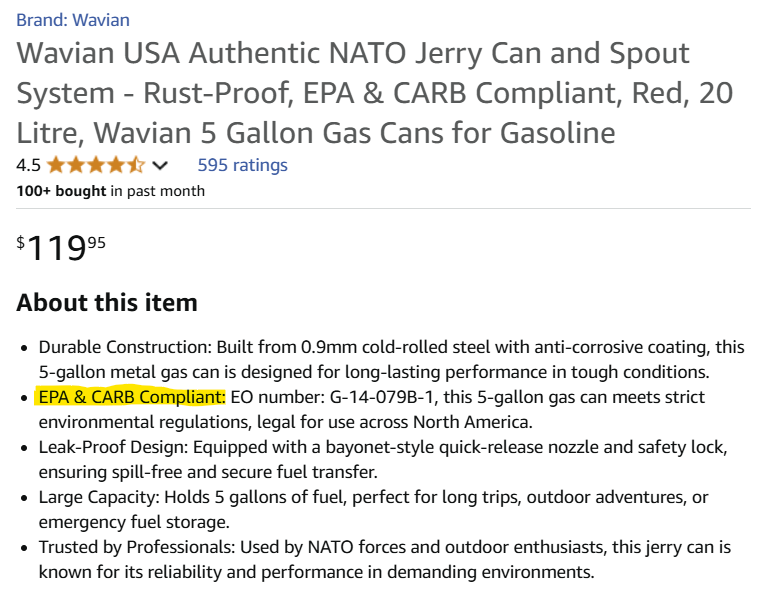
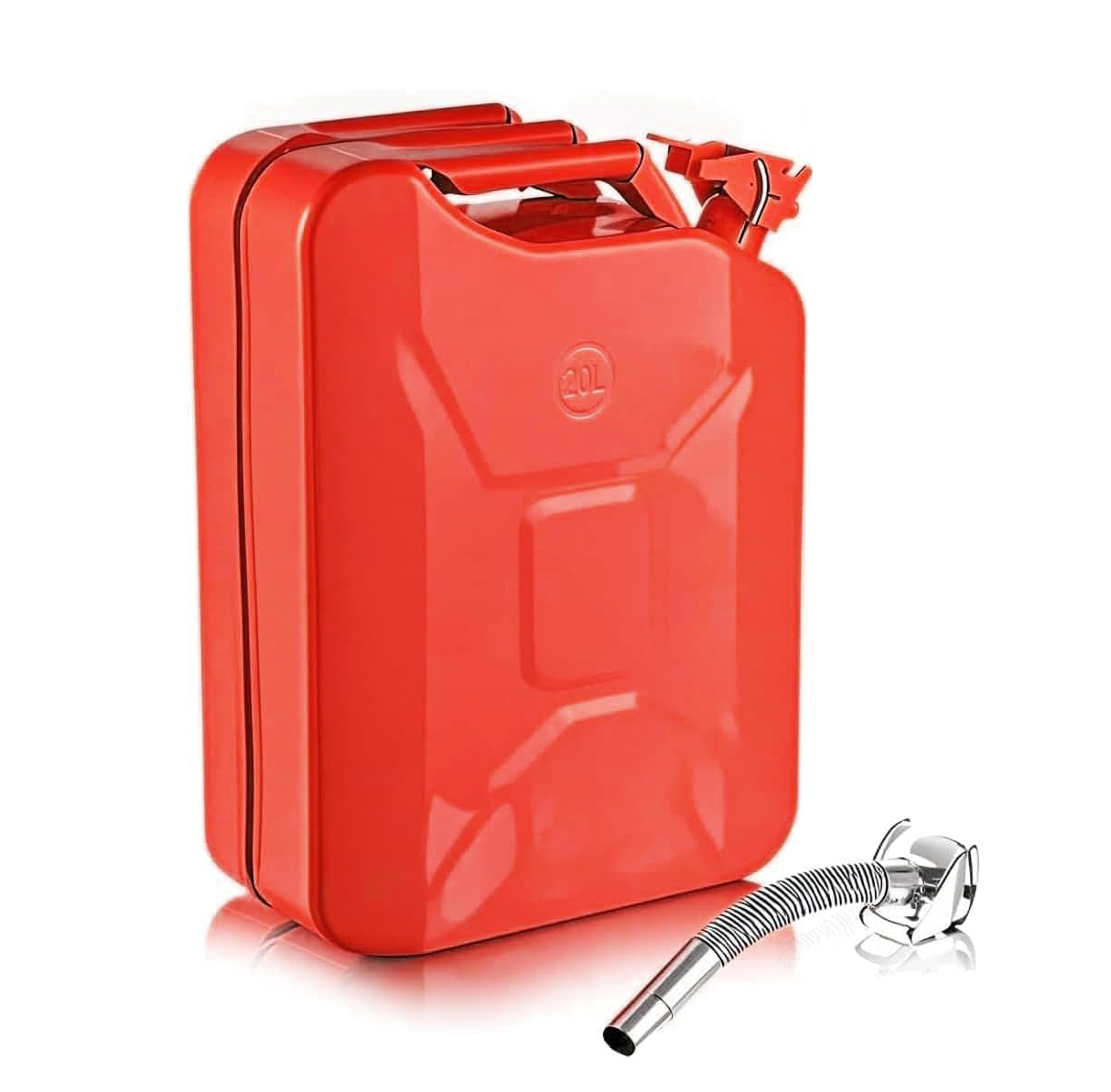
Will the EPA’s letter have an impact? It’s entirely possible. One or more gas can manufacturers may be inspired to start fitting their products with compliant vent systems, marketing them for their better flow and ease of use. In the meantime, the market remains flooded with gas cans sporting all sorts of weird and confusing spout systems, some of which probably flow well, and many which don’t. In any case, the EPA isn’t going back on evaporative emissions regulations, so time will tell whether manufacturers will step up and prove better gas cans are possible.
Top graphic image: depositphotos.com

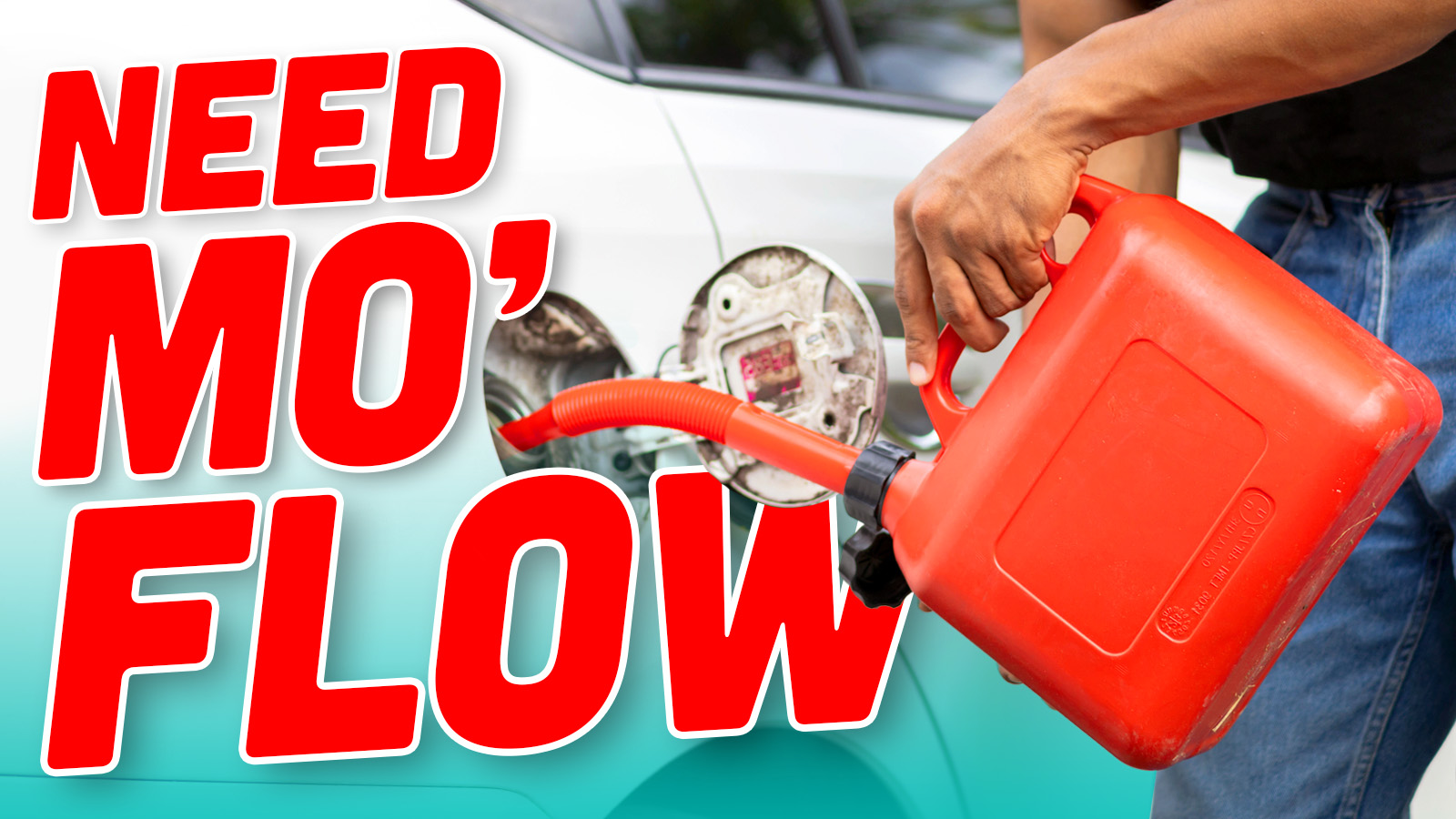






VP Racing fuel jugs are the ticket. Yes they’re spendy compared to the junk red cans and may be unlawful to fill with fuel, but they just work like fuel cans should. Just remember not to actively smoke or vape while the jug is uncorked, and store properly when not in active use.
Mine are from the early 2000s.I never knew they were a pain in the ass until my neighbor moved and gave me a few he didn’t need. I thought the button would make things easier. Ohh hell no. The button got stuck on and gas went everywhere. Then a few times later I couldn’t push the button in. What a POS.
And you can’t find a normal spout for it because the opening is so big. I have kept since I can always use it during hurricanes.
The two red cans in the reddit post completely suck to use, and you end up spilling more than you use, or ripping the guts out and then the can is open to the elements letting all the vapors out and rain and bugs in. The Push button NO-SPILL one shown works great, but many places do not have them as they are $35, not $15. From a guy with lots of small engine equipment and motorcycles. All of them suck to fill a car from, and you need an additional funnel or tube – which is where the Not for Fuel use cans work great.
We fucking had gas cans that flow better! I still have four NATO-spec steel jerry cans, with the plain old metal “donkey dick”. They seal so well I have to go “burp” them on a trip if they get sunlight on them or we change altitude. They will also crush themselves if I don’t let air in while descending in altitude. I can open them up, get the spout on, and get every drop inside my tank in less time than it takes a crappy CARB-compliant can to drip 20% of the contents onto the ground.
I want clean air, my city regularly has some of the worst air in the world – but those crappy CARB cans make the problem worse, not better.
I never knew this was an issue. I have several gas cans, but they’re all old enough that they simply came with an effective vent. These days I only use one for filling the lawn mower. It must be twenty or twenty-five years since I needed one to refuel a car.
This is the stupidest thing I have ever seen on this site.
If you’re at a point in life to need one of these things, you’ll just deal with whatever indignities you have to just to get your car going again.
First world problems, ad infinitum.
There are plenty of situations where you will need a gas can that don’t involve running out of gas. Adding race gas to a car. Refilling tanks following a repair that required draining it. Filling up yard equipment. Go carts. OHVs. You name it, and in many of these situations, the safety cans are either a pain in the ass or they just don’t work. For instance, it’s damn near impossible to use a safety can with classic cars that don’t have fillpipe restrictors, especially when the filler is down low behind the license plate. Even if they do work, by the time you can dribble five gallons of gas into something, your arm is damn near falling off. These things suck ass and they annoy the hell out of a lot of gearheads, so I’d say the article is totally valid.
Go spend 10 days in the backcountry without resupply. I would carry 20 gallons of extra fuel at times and make it back to a gas station with all my cans empty and half a tank left.
We also fuel our race bikes from cans so we can carry race fuel or at least 100 octane to the track. Carrying cans for dirt bikes, ATVs, farm equipment, well pumps, small excavators for clearing or digging drainage, portable generators, etc. is really common.
Don’t think that just because you happen to live where two or more Interstates meet, that everyone has a dozen gas stations within 10 minutes of where they live.
Well sorry. I have never been in any of these situations. I ended up about 10 miles N of Moab in a U-Haul that seemed about to run out of fuel and paid $6/gallon to make sure I could get to somewhere gas would be cheaper.
Pretty snarky for someone who is quick to judge others while not being able to see past the end of their own nose.
Stopping to think for a few seconds would come up with a dozen different use-cases for fuel cans, just because you don’t need them doesn’t mean there isn’t a need.
I haven’t owned a gas-powered piece of yard-care equipment in over a decade and maybe fuel cans have become more annoying since the last one I used. I remember a spout and a vent and flow rate was not an issue. Going back and re-reading the article, I see that things have changed since I last used one. And the ones I did use were all of one gallon capacity. Enough to fill up the lawn mower or the roto-tiller.
I didn’t mean to offend anyone. And I certainly am not judging anybody.
Kramer: Hey. Super’s in my bathroom changing my shower head. Have they
changed your shower head?
Jerry: No, he’s doing mine next. They’re low flow you know.
Kramer: Low flow? Well I don’t like the sound of that.
The last time I had to use a gas can was in 1985. And the was with a BMW Bavaria with a wildly psychotic fuel gauge. So, 40 years of adequately planning ahead.
The number of people here who think fuel cans are only for people who run out of gas is staggering.
Tell me you’ve never spent time on a farm or ranch, or done any vehicle travel in backcountry areas without saying it.
Modern gas cans and spouts are JUNK. I had to buy a couple of new 5 gallon cans recently and the spring loaded valve design is horrible. I ended up cutting all that out so I could get regular flowing spout. But then the problem is there is no air vent hole in the can.
There are kits on Amazon to add a vent and a flexible spout with a screw cap and I’ve used them on all of my gas cans. I did RTV the vent in place and they seem to seal well enough; unscrew the spout cap on a hot day and you can feel and smell the pressure release.
Before anyone gets too caught up in gas can nostalgia, let me bring you back down to earth: gas cans have never been good. I’m old enough to have personally used gas cans all the way back to the early 80s and they’ve pretty much always been a nightmare of spilling and burping and leaking and making an absolute mess unless you’re savvy enough to find the one model that doesn’t suck. And that’s still the case today: most gas cans suck, and only a scant few models (I’m personally fond of the Justrite Accuflow) are worth a damn.
There were some old designs that Sears sold starting in 1968 all the way up until like 1980 where it was basically a cake tin with a flexible neck and a rubber stopper for the vent hole. I’ve never spilled gas with it because the domed shape limits how much gasoline (or kerosene) can actually reach the neck. The one downside is that it’s a bit hard on your wrists because the handle is dead center on the top.
You will take my NATO spec Jerry Cans from my cold, dead hands. Best cans I’ve ever used; replacement gaskets for the “donkey dick” are still being made today, it won’t spill a drop as long as you keep that gasket in good shape.
I’ve got a 20 litre Wavian can, legal spout sucks when the flow control brim isn’t pushed in. I went with a Valpro long reach flex spout. Life is great other than the weight of a steel can with a bunch of gasoline in it.
Here is an interesting question that nobody askes. Since we have decades of air quality data that predates the 2009 change and decades of air quality date after the change, did the revised gas cans accomplish what the EPA hoped? How many kids were burned before the change vs how many kids were burned after? Did these ridiculous regulations make the world better??
VP Racing has the answer to this…just don’t put gasoline in them, right?
This directive seems to be in line with the push to rescind all GHG emissions regulations as well.
Summit racing has the answer, they sell fast pouring jugs and say they are not for fuel.
Don’t forget the fast-trigger valve. Slap that badboy on your shoulder and it will fill a motorcycle tank in no time.
I got tired of trying to figure out a way for mine to pour smoothly and now I just remove the spout and pour it into the lawnmower through a funnel.